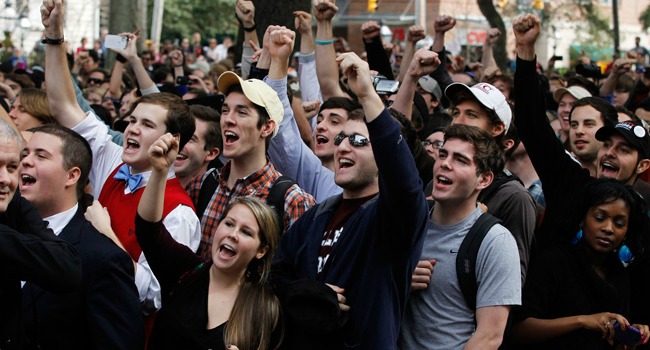
SHARE
READ & LEAVE A COMMENT

If you don’t understand Millennials, you don’t understand how to speak to us. If you don’t understand how to speak to us, you can’t attract us. Which means what?
Political parties and politicians have a branding problem.
For a time, I worked for a start-up political party. I learned how to build a political party, which is an experience very few Millennials have because parties have existed for a long time, their branding entrenched. As the saying goes, and will likely always remain true at the heart of each individual campaign, all politics is local. Understanding the base of who your supporters are guides the brand development for the party, but partisan politics across the globe have not adapted to generational traits and change.
Millennials are political consumers, and we are innovating consumer marketing. We are attracted and loyal to brands whose stories are authentic and resonate on a personal level. We want to participate in developing the brand itself through our engagement. Political brands – the ideas, the message, and the people who espouse these – should be able to connect with voters if the brand is strong. Political parties need to re-evaluate their brands, connecting brand heritage and brand culture, and put serious consideration into how they communicate with – not at – the next generation of voters. Ingenuity is required in political marketing communications because what and how parties are try to communicate now is not working.
Communicating with Millennials does not mean social media presence. Political parties won’t know how to communicate with us until they have listened to us, which means genuine engagement. All politics is local, which means engagement is going to take real effort. Millennials share the same concerns as the rest of the electorate, yet we are seeing decreased partisan membership among youth and young professionals, low voter turnout, and increased skepticism and dismissal of traditional and mass media.
Women are still vastly underrepresented in elected and partisan leadership positions. Culture change in politics is required to ensure we attract the best and the brightest, which comes down to a person’s character. There are few examples of strong, good women in politics for young women to look up to, and progress has been slow in reaching equality in representation.
Political parties need to make a concerted effort to update their branding and learn to communicate with Millennials. They need to hire and include Millennials, especially capable young women, in positions where their input is heard and valued, and the best advice will very likely come from leaders in their own fields, not those mimicking existing political behaviour in their own pursuit of advancement. Making changes – not just paying lip service – is what will effect real change in our political parties. Millennials want to see results, not another reason to stay away from politics.
SHARE
READ & LEAVE A COMMENT